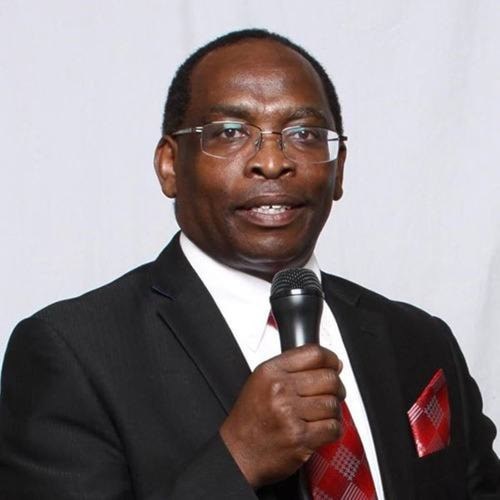The Liberal Party of Canada’s 2025 election candidate in Prince George-Peace River-Northern Rockies has lived in the riding for just two weeks, but says he’d do a good job of representing constituents’ concerns in Parliament.
Peter Njenga, pronounced like the game “Jenga” as the “N” is silent, is no stranger to being a political candidate.
He came second in the Abbotsford riding in the 2015 federal election as the Liberals’ candidate and placed fourth in the provincial constituency of Surrey South as an independent in the 2017 provincial election.
Visiting The Citizen’s offices on Tuesday, April 8, Njenga said he and his wife started to plan a move from a farm in Nanoose Bay on Vancouver Island about six months ago and arrived in Prince George about two weeks ago.
Back on the island, Njenga said, he worked as a real estate agent.
However, he also said he has a doctorate in finance, a master’s degree in business administration, a bachelor’s degree in commerce, is a chartered professional accountant and runs a philanthropic group called the Dr. Njenga Foundation Charity that helps people experiencing homelessness in Canada and orphans in Kenya.
“This is a good area, prime for development and especially I’m attracted by the wood industry,” Njenga said of Northern BC.
The forestry industry and how it’ll be impacted by U.S. President Donald Trump’s tariffs, he said, is the biggest issue facing Prince George-Peace River-Northern Rockies in this election.
“The best person to (handle) this is Mark Carney, because he is respected,” Njenga said.
“When he was elected, the first thing he did was go to Britain, to France and all those countries. He showed Trump that you are not going to shake Canada, we have got other friends. (Carney) is there to support Canada and we have got the best qualified candidates among all those parties to help us overcome the issue of tariffs from the south.”
He said that a vote for him is also a vote for Carney.
Beyond forestry, the riding is also home to both liquified natural gas and oil resources. Njenga said those resources should be developed, but in agreement with First Nations and done with appropriate care for the environment.
The riding’s incumbent, Bob Zimmer, is third in the line of Conservatives who have represented the area in the House of Commons since it last elected a Liberal for the 1968-1972 term.
Njenga said voters should vote for him and his party because of the leadership they’ll provide in the struggle against Trump.
His brief time in the Prince George area, he said, is not an impediment to his ability to represent voters’ concerns in Ottawa.
“The important thing is not what I know, (it’s) what they tell me they want,” Njenga said. ”The residents here would tell me ‘Okay, Peter, let’s have a meeting. We want A-B-C-D to be done. Can you send that one to Parliament?’”
From his previous campaign experience, Njenga said he better understands how to connect with residents and evaluate political issues.
So far this time around, Njenga said he’s spent his time working in Prince George. Next week, he said he would spend time in the Peace River area and then the farthest northern parts of the region after that.
While answering a question about how The Citizen could reach him for comment going forward, Njenga said he’s an open book and alleged that the other candidates in the region “are hiding,” asking whether the paper had interviewed any of them.
He was informed that he was the last candidate in Prince George-Peace River-Northern Rockies to be interviewed by The Citizen.
Regardless of whether he wins, Njenga said he planned on staying in Prince George after the election.




